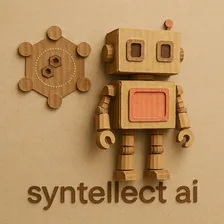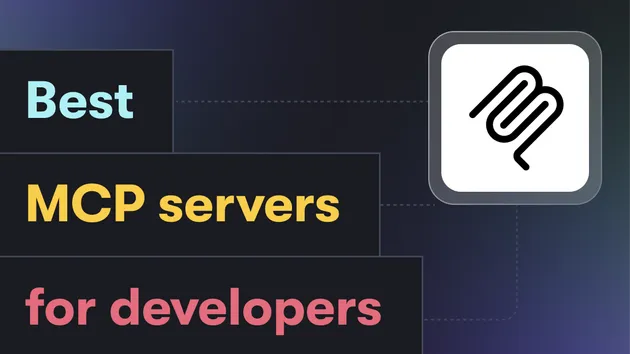Whatsapp Sms
Pricing
from $0.70 / 1,000 results
Whatsapp Sms
Integrate your AI systems with WhatsApp Business API using the WhatsApp MCP Actor. This tool connects Model Context Protocol (MCP) servers with WhatsApp, enabling AI agents and applications to manage messages programmatically. send and receive messages in whats app
Pricing
from $0.70 / 1,000 results
Rating
0.0
(0)
Developer

christopher athans crow
Actor stats
1
Bookmarked
30
Total users
2
Monthly active users
4 months ago
Last modified
Categories
Share
WhatsApp SMS Actor with MCP Support
A powerful Apify Actor that enables WhatsApp messaging through the Message Control Protocol (MCP). This Actor can operate in two modes: sending individual messages or running as an MCP server for AI agent integration.
Features
-
Two Operation Modes:
- Send Mode: Send individual WhatsApp messages
- Server Mode: Run as an MCP server for AI agent integration
-
QR Code Authentication: Secure WhatsApp Web authentication via QR code
-
Session Persistence: Maintains authenticated sessions across runs
-
REST API: Full HTTP API for message sending and status checking
-
Dataset Storage: All messages are stored in Apify datasets for tracking
Configuration
Input Parameters
| Parameter | Type | Description | Required | Default |
|---|---|---|---|---|
mode | string | Operation mode: send or server | Yes | send |
phoneNumber | string | WhatsApp phone number (with country code) | For send mode | +1234567890 |
message | string | Message text to send | For send mode | - |
serverPort | integer | Port for MCP server | For server mode | 3000 |
useQRAuth | boolean | Enable QR code authentication | No | true |
Example Input (Send Mode)
Example Input (Server Mode)
Usage
Send Mode
- Configure the input with
mode: "send" - Provide
phoneNumberandmessage - Run the Actor
- Scan the QR code when prompted (first time only)
- Message will be sent automatically
Server Mode
- Configure the input with
mode: "server" - Run the Actor
- Scan the QR code when prompted (first time only)
- Use the REST API endpoints:
API Endpoints
Health Check
Get QR Code
Send Message
cURL Example
Authentication
QR Code Authentication
The Actor uses WhatsApp Web's QR code authentication:
- First Run: A QR code will be displayed in the console
- Scan: Open WhatsApp on your phone → Settings → Linked Devices → Link a Device
- Scan the QR code displayed in the terminal
- Session Saved: The session is stored in the Apify key-value store
- Subsequent Runs: No QR code needed (session persists for ~20 days)
Integration with AI Agents
MCP Client Configuration
Add this to your AI client's configuration file (e.g., Claude Desktop config.json):
Using with AI Prompts
Once configured, AI agents can send WhatsApp messages:
Output
All sent messages are saved to the Apify dataset with the following structure:
Local Development
Prerequisites
- Node.js >= 20.0.0
- Apify CLI installed
- WhatsApp mobile app
Installation
Running the Actor Locally
Send Mode:
Server Mode:
Set input mode to "server" in .actor/INPUT.json, then:
Deployment
Deploy to Apify Platform
Technical Details
Dependencies
@whiskeysockets/baileys: WhatsApp Web API implementation@modelcontextprotocol/sdk: MCP protocol supportexpress: HTTP server for REST APIqrcode-terminal: QR code display in terminalpino: Loggingapify: Apify SDKcrawlee: Web automation framework
Session Storage
Authentication sessions are stored in:
- Local:
./storage/key_value_stores/default/whatsapp_auth - Cloud: Apify key-value store (persistent across runs)
Architecture
Troubleshooting
QR Code Not Showing
- Ensure
useQRAuthis set totrue - Check console output for errors
Session Expired
- Sessions expire after ~20 days
- Simply re-scan the QR code when prompted
Message Not Sending
- Verify phone number format includes country code (e.g.,
+1234567890) - Ensure WhatsApp connection is established (check logs)
- Verify the recipient has WhatsApp installed
Connection Issues
- Check your internet connection
- Ensure WhatsApp is not logged out on your phone
- Try clearing the session and re-authenticating
Security Considerations
- Never share your authentication session files
- Use environment variables for sensitive configuration
- Respect WhatsApp's Terms of Service
- Implement rate limiting for bulk messaging
- Do not use for spam or unauthorized messaging
License
ISC
Support
For issues and questions:
- GitHub Issues: [Report here]
- Apify Community: https://community.apify.com/
- Documentation: See AGENTS.md for AI agent integration details


